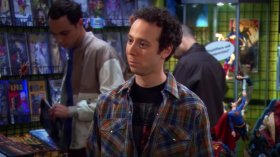AACTA and AFI recently hosted a preview screening and Q&A of The Lego Movie. Image courtesy AFI | AACTA.
The Australian Film Institute (AFI) and Australian Academy of Cinema and Television Arts (AACTA) are entering a period of growth, and Australian screen professionals, emerging screen artists and film and TV enthusiasts are strongly encouraged to join.
AFI membership is open to all screen enthusiasts – anyone with an interest in film or television can join. You do not need to be working in the film or TV industries, AFI members all just have a shared love of the film and television arts.
AACTA membership is open to Australian screen professionals. People working in the Australian film/television industries who satisfy the accreditation requirements are granted membership and allocated into one or more of the 15 AACTA chapters (actors, animators, cinematographers, composers, costume designers, directors, editors, executives, hair & make-up artists, media & public relations, producers, production designers, screenwriters, sound and visual & special effects) based on their areas of craft specialisation.
A new Events Program in Sydney and Melbourne gives members of both organisations new opportunities to participate fully in the sector.
CEO Damian Trewhella said the future opportunities and membership value for both tiers was inspired by the strong and engaged filmmaking communities in the UK and US, in organisations such as BAFTA in the UK, where screen professionals mix with screen enthusiasts in an environment that celebrates the art form.
He believes the potential exists to bring together the Australian screen sectors into one productive community, much like their foreign counterparts are doing so effectively.
‘We looked at where some of the other leading industries are at the moment in the 21st century, and our priority is to foster this same culture here in Australia. We’re four months into presenting a diverse program of events to our members in both Sydney and Melbourne that has seen strong attendance and participation from industry guests, actively contributing to the screen culture in both cities, then ultimately spreading out across Australia.
‘But we need support from the wider community, both screen professionals and the film and TV enthusiasts, for this program to develop further. Every new member helps,’ said Trewhella.
The AACTA Awards are Australia’s pre-eminent film and television awards determining true excellence in film and television across more than 40 Awards annually and presented at two major events hosted in Sydney in January. The AACTA Awards will continue as Australia’s screen culture night of nights – and the standout major events of the Academy. But it is now supplemented by a broad and robust program of events presented year round for members, including regular networking events at Bondi Junction in the now-established AACTA Bar, in partnership with Event Cinemas.
Trewhella identifies the ‘very fragmented’ nature of Australia’s screen industry as a key challenge. ‘If you look to London, Los Angeles and New York, you have very strong screen industries in these cities.
‘In Australia we don’t have this to the same extent, in part because of our geography and the distance between our major cities,’ said Trewhalla.
‘A key challenge facing Australian filmmakers has been this geography – how to bring everyone together has been a big challenge. So we are starting off in Melbourne and Sydney, and are rolling out programs in both cities that began in February this year, and over the coming years we intend to expand across the rest of the country, presenting events and screenings for all Australians who love the screen arts. Wherever there’s interest in the art form we want to be there to promote Australian film and television and help foster screen culture and industry development”, said Trewhella.
Among the events AFI|AACTA have staged this year was a preview screening of The Lego Movie, just after it set the global box office alight. The whole Animal Logic team who created the movie discussed the making of the film. Last month there was a special Q&A screening of The Rover in Melbourne, with director David Michôd and producer Liz Watts in conversation. Earlier this month an AFI|AACTA Masterclass featured US screen legend Bill Mechanic in Sydney. Mechanic was in Australia working on The Moon and the Sun starring Pierce Brosnan and William Hurt, and will be returning later in the year with another film project.
Upcoming Melbourne events include a screening of Around the Block on 23 June, with a Q&A with the cast, and a showcase of the 2014 Oscar Short Film finalists, hosted by Adam Elliot on 2 July. Upcoming Sydney events include a Q&A screening of The Babadook with Jennifer Kent on 23 June, and an exclusive Q&A screening of Charlie’s Country with Australian screen legend Rolf de Heer on 7 July.
‘Our aim is to bring both tiers of our membership together – so the screen professionals mix with emerging sector students and film and TV enthusiasts together year-round, because they are our screen community,’ said Trewhella.
‘By bringing everyone together we can increase productivity in the industry. By connecting everyone we overcome our geography. Whether they are people who are just entering the industry or others who are further along the development path, we all need each other, and we want to facilitate this ongoing connection with our peers,’ he said.
Trewhella said that Australia’s screen capability is as big as Australians want to make it. ‘The question about what kind of industry we want to have going forward is an interesting one. If we’re open minded to what it is then the ceiling is limitless.’
He said Australia could become a filmmaking centre, not just for Australian stories but also for global story telling.
‘While we always need to continue telling stories about ourselves and our nation, there should also be room for more universal stories, stories that translate beyond our borders in what is increasingly a shrinking world. We’ve seen such exports come from a number of countries that have had international appeal, and that sets up a model that Australia can follow. I can’t see why Australia can’t become the California of the Southern Hemisphere,’ he said.
Membership to the AFI is open to everyone.
AFI members are entitled to complimentary access to a range of year-round film and TV events and screenings produced by AFI|AACTA, including preview screenings of new Australian films, masterclass seminars, short film showcases and historic Australian film premieres. Most of these events take place in Melbourne or Sydney but they hope to expand into other cities by next year. Additionally all AFI members have access to the Official AACTA Awards Screenings hosted in both Melbourne and Sydney each October; the convenience of AACTA TV – an online viewing platform that hosts the nominated short films, documentaries and a super majority of the feature film in competition plus access to the AFI Research Collection hosted at RMIT. AFI members have voting privileges in the two Short Film Awards and also only pay the concession price on presentation of an AFI membership card when seeing films at local cinemas.
Membership to AACTA is open to all people who work in the film and TV industries.
AACTA members have all the same benefits as AFI members, but they also are entitled to vote in the peer-assessed AACTA Awards. They can also apply to become an AACTA Awards Juror.
Visit the AFI | AACTA website for more information and to join.





